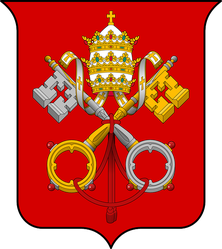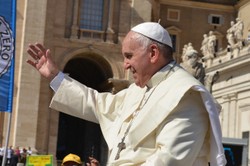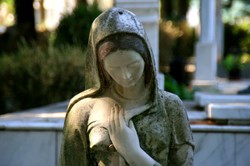She was devoted to the improvement of women and the end of discrimination against them. But Edith's feminism has roots different from modern feminism, which draws its origins from liberalism and socialism. She was deeply and profoundly Catholic, and she rooted her feminism in an awareness that men and woman share a common humanity, but are different and complementary sides to the same human race. Edith never made the mistake of trying to model women's lives on men's by imitating the male love of power and careerism. Yes,she wanted women to have careers, but she believed that women could only be themselves if they put a feminine stamp on the activity they were performing. She believed that women were particularly suited for careers in education, medicine and social work, along with politics and law.
She never made the mistake of thinking that to promote equality we had to deny the biological difference between the sexes, and she was acutely aware that men and women differed from each other. She also never made the mistake of disliking men, though she was unimpressed by male sexism when she met it. She would, however, have no truck with feminists who are unfriendly to males or belittle them.
Girls' education was her professional specialism. She would have been horrified by those private Islamic girls' schools who educate girls only in religion and housework/childcare. For Edith girls should enjoy access to all subjects. She was of the opinion that the unique nature of a female was to want to fulfill herself totally. In this she anticipated those in the women's movement who aspire to "have it all" but she would have objected to concept of having as it implied possessiveness.She would have preferred doing it all or being it all. I think that she misunderstood men insofar as she thought that men were content to be specialists in one area to the exclusion of others. While this may be true of some men, there are those of us who share the female desire for a wider, more balanced life than can be obtained by narrow specialization.Edith would have understood and agreed with those women who opt for a lifestyle in which career is balanced with personal life.
She was a devout Catholic and completely devoted to Christ, often spending hours a day in adoration while she was in the convent. She was also completely devoted to the church. The question of the role of women in the church exercised her, and she looked forward to the day when women had an expanded role and an ordained ministry, though at a time when the church was under pressure from Nazis, Communists and Secularists she took care not to rock the boat in this matter.
Finally,she was convinced that women had a special role in God's war against evil, as she thought that women were especially spiritually sensitive. This seems to be borne out by the fact that women seem on the whole to be more religious than men are, but we can overstate the differences.
Edith was a woman who accepted that truth can be known, a challenge to our post-truth era, and who lived in the truth as she saw it. Alisdair McIntyre, a philosopher also a convert to Catholicism said that she lived her philosophy, and he contrasted her to her erstwhile colleague, Martin Heidegger, who attempted to become the Nazi party's leading philosophical light, but later tried to explain away his Nazi sympathies. But Edith won again, as late in his life Heidegger made his peace with Catholicism and returned to the church.








 Darkness over the Earth the skies darkened when Jesus was crucified17 days ago
Darkness over the Earth the skies darkened when Jesus was crucified17 days ago
 TheThousand Year Gardenon 11/26/2025
TheThousand Year Gardenon 11/26/2025
 Women of the Gospelson 10/11/2025
Women of the Gospelson 10/11/2025
 Religious Gardenson 08/25/2025
Religious Gardenson 08/25/2025




Comments
I do not ,know ,whether she had the time to clarify the boundaries between the two spheres before she died.
The second paragraph to the first subheading, Edith's early life, advises us that "She was also deeply aware that the state or powerful forces who seize control of it tended to interfere in individual life, quite prescient as events were to turn out. In response she wrote An Investigation Concerning the State, which argued that there is a personal sphere into which the state must not interfere."
Is it known how St. Edith Stein defined individual and personal lives and what spheres she judged untouchable by outsiders such as "the state"?
Probably.a story,or proverb has a power that philosophical definitions lack.
Thank you for your explanation in answer to my previous, same-day observations and question.
Elvis Presley's song Walk a mile in my shoes arises from the Southern States' Cherokee tribal saying, "Don't judge a man until you've walked a mile in his shoes."
Might that empathetic definition present what interpreters such as actors, biographers and portraitists seek?
The problem with empathy is how to explain our knowledge of another person's feelings and viewpoints.
The second paragraph to the first subheading, Edith's early life, advises us that "After the war she returned to academia, where she was a student of the Phenomenologist Husserl, where she wrote her first work, On the Problem of Empathy."
How did she perceive empathy as problematic?
There is so much to say about Edith's thought that I had to be selective, for her philosophical thinking was powerful and required much explanation, more than could be handled in a Wizzley article. She also left some spiritual writing that expressed her religious feelings and thoughts. Fortunately the Nazis were unaware of it and so it survived.
Had it not been for Hitler, the massacres would not be gruesome and so many. Saint Edith was yet another victim of the Hitler era. However, her work remains and it is interesting to see that her life was instrumental in improving the status of women.
Good point, Derdriu. There are mass graves and pits where the Nazis dumped cremated remains outside the camp. Humans should never build on these. But while we respect them, nature slowly takes over and reclaims them. This is good, for it is Mother Nature's healing.
Every now and again genocidal hatred explodes in the world: Germany, Rwanda, Bosnia, Sudan. Where next? And When? Genocide does not just spring up, for it brews in a poison cauldron often over centuries. So counter-genocidal cultural institutions, such as the use of Auschwitz as a memorial and a warning, work against the spreading of the poison
frankbeswick, The manner of her death, and that of others, makes the ground outside --
in addition to that within -- Auschwitz a place that must be memorialized, protected and respected for all time.